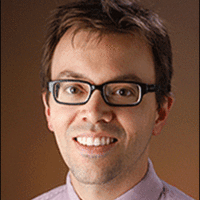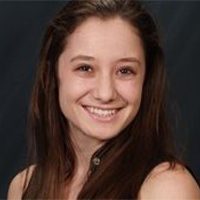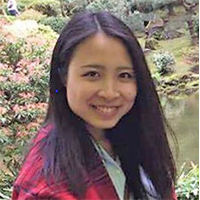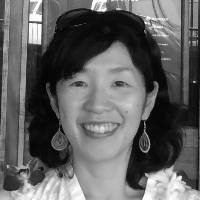Internal teaching grants recipients 2021-22
Spring 2022
Educational Advancement Fund
 Tucker Biddlecombe, associate professor of choral studies; “Choral Library – Modernizing for Equity”
Tucker Biddlecombe, associate professor of choral studies; “Choral Library – Modernizing for Equity”
The Vanderbilt Choral Library provides course-related materials for choral singers, free of charge, in both curricular and non-curricular vocal ensembles, serving over 300 singers in choirs throughout the University. The library contains music dating back to the Peabody School of Music (1920s) and while it is a fascinating historical resource for choral music at Vanderbilt, it is also considerably dated and lacks diversity in its offerings. The library is located in the basement of the Music Rehearsal Hall and is at nearly full capacity with no further room for expansion. This continuously expanding choral library project would provide a detailed cataloguing and evaluation for each piece in the choral library, purge/donate music that is no longer stylistically or historically appropriate, and provide repertoire and library experience for Integrated Studies Teacher Education (Blair-to-Peabody) students.
View Tucker’s spotlight blog post
 Lily Claiborne, principal senior lecturer of earth & environmental sciences; “Learning through Community Engagement in Earth and Environmental Sciences”
Lily Claiborne, principal senior lecturer of earth & environmental sciences; “Learning through Community Engagement in Earth and Environmental Sciences”
This project aims to support new efforts in the department of Earth and Environmental Sciences to create significant opportunities for student learning through community engaged coursework and research. In addition to being a high impact teaching practice, this kind of work has been shown to be of particular value to URM students, and therefore may support EES goals of recruiting and retaining more URM students to the EES major. A cohort of EES faculty have already begun work on one project, including engaging students in research last summer focused on contamination and flooding along Mill Creek in Nashville. Drs. Claiborne and Oster will co-teach a new course on community engaged science in Spring 2021, aiming to expand these efforts in coming years. These funds could support implementation of community engagement activities in the course and facilitate partnering with the CFT to assess the effect on the EES undergraduate program.
View Lily’s spotlight blog post
 Raheleh Filsoofi, assistant professor in ceramics, department of art ;“Clay 3D Printer: Bridging Art and Technology at Vanderbilt University”
Raheleh Filsoofi, assistant professor in ceramics, department of art ;“Clay 3D Printer: Bridging Art and Technology at Vanderbilt University”
Art production is evolving naturally toward digitalization. Digital rendering of ceramic designs is now an established practice at many universities. Digital rendering is a complex method for artists and designers, and through my research, I intend to expand the university’s toolkit in the spring of 2022. The clay 3D printer creates new possibilities for the technical production of forms and objects, and ceramic digitalization will be incorporated into the curriculum for my spring and fall semester classes. Students will analyze its place as a tool on the continuum of production along with traditional ceramic techniques and explore how this new technology augments and bridges methods and processes in pursuit of innovative products. In spring 2023, I will offer an entire course devoted to digital production and pursue collaborative projects with Wond’ry, the Engineering faculty, Studio Design, and others interested in digital fabrication.
 Julie Johnson, professor of the practice of computer science; “Measuring the Impact of Peer Review on Learning Gains”
Julie Johnson, professor of the practice of computer science; “Measuring the Impact of Peer Review on Learning Gains”
There is much research to demonstrate that when students engage in peer reviews of their writing samples, these students become better writers. I have seen this in my own classroom in the last three years, since I began using Peerceptiv, a tool that facilitates blind peer evaluation of students’ writing. I am pleased to see my students become better writers, making it possible for them to convey otherwise complex algorithms in clear and concise terms. But the question remains, are my students actually becoming better algorists because of this activity? True—they can convey their ideas better, but are they coming up with better ideas? This is the the focus of my multi-year research project into the efficacy of peer review activities. For this proposal, I am seeking support for the creation of a Concept Inventory to measure learning gains.
View Julie’s spotlight blog post
 Neil Kelley, assistant professor of earth & environmental sciences ; “Revitalizing Vanderbilt EES Teaching Collections for the 21st Century”
Neil Kelley, assistant professor of earth & environmental sciences ; “Revitalizing Vanderbilt EES Teaching Collections for the 21st Century”
This proposal seeks to build on ongoing work in the department of Earth and Environmental Sciences to update and enhance our existing collections of rocks, minerals, and fossils as well as other physical teaching resources and educational displays. The goals of this project include: 1) Assessing, repairing, and reorganizing existing materials; 2) Cataloguing existing collections into a digital catalogue so instructors across EES and other departments can quickly identify teaching materials for use in their courses; 3) Targeted acquiring of new materials, including via departmental trips to regional outcrops that permit sample collection and 4) Redesigning existing educational displays to highlight exceptional specimens not suitable for hands-on teaching and present contemporary scientific concepts through the lens of research conducted by Vanderbilt students and faculty. Undergraduate students will be engaged at each level, amplifying the educational impact of this effort far beyond what happens within individual course curricula.
View Neil’s spotlight blog post
 Marci Zsamboky, assistant professor of nursing; “Utilizing a Trauma-Informed Care Approach to Nurse Practitioner Education”
Marci Zsamboky, assistant professor of nursing; “Utilizing a Trauma-Informed Care Approach to Nurse Practitioner Education”
Dr. Marci Zsamboky, academic director of the Psychiatric Mental Health Nurse Practitioner (PMHNP) Program in the School of Nursing, received funding in spring 2021 for a HRSA Behavioral Health Workforce and Education Training grant. The primary goal of the project is to increase the behavioral health workforce in rural and high provider shortage areas, and a secondary goal to provide curricular enhancements to the PMHNP program in specific areas, including trauma-informed care. This proposal will support Dr. Zsamboky and Dr. Megan Simmons’ participation in a virtual two-day training entitled Trauma Informed Systems Change. This participation will provide an evidence-based foundation for understanding and applying a trauma-informed approach to advanced practice nursing education.
Course Improvement Grant
 Pengfei Li, lecturer in Asian studies; “Empowering Students through Digital Games”
Pengfei Li, lecturer in Asian studies; “Empowering Students through Digital Games”
In this project, I will introduce Quizziz into my Advanced Chinese Writing course. Quizziz is a game-based online platform that allows students to answer questions in different formats, such as multiple choices, blank fillings, polls, and open-ended questions. With its most recent feature, teachers can create lessons that integrate questions into multimedia-supported slides. I will first use Quizziz outside class as a means to enhance students’ experience in previewing and reviewing the learning materials. The self-evaluative nature of Quizziz will allow the students to assess their knowledge of the materials both before and after the class. Secondly, it is expected that the fun gaming environment of Quizziz will boost students’ motivation and provide them an incentive to do better. Last but not least, students will create their own questions and take this opportunity to share with others what they have learned from the teacher’s feedback on their essays.
View Pengfei’s spotlight blog post
 Brenda McKenzie, associate professor of the practice in leadership, policy, and organizations; “Applying Developmental Understanding to Student Initiatives for Underserved Populations”
Brenda McKenzie, associate professor of the practice in leadership, policy, and organizations; “Applying Developmental Understanding to Student Initiatives for Underserved Populations”
Student development literature contains stories and theories of some student identity groups and fewer stories and theories regarding others. The purpose of this semester-long project in the Theories of Student Affairs course is to learn the stories of those students less visible in the student development literature, connect learning about theory to actual student stories, and apply learning to practice. This qualitative data gathering will then inform a proposed program or service based on developmental theory and interview/focus group analysis. This grant funding would allow for the development of additional support and resources for the students as they develop qualitative research skills and conduct their data gathering and analysis. Sound pedagogical design of this semester-long project will aid in enhancing students’ ability to connect theory-to practice, but will also reinforce the mindset that understanding students and their needs is critical to intentionally designed initiatives in their workplace following graduation.
View Brenda’s spotlight blog post
 Ryan Middagh, assistant professor of jazz; “Jazz and Global Ensemble Recording of New Works”
Ryan Middagh, assistant professor of jazz; “Jazz and Global Ensemble Recording of New Works”
This proposal is for MUSE 1310: Jazz Ensemble: Big Band and MUSE 1340: Special Ensemble in Jazz and Global Music, to do an audio and video recording of new works, some by established jazz composers and some by students in the ensembles or larger Vanderbilt music community. This initiative will provide students an opportunity to gain a better understanding of the audio and video recording processes, experience the creativity possible in a recording environment, and creates a capstone-style project for a performing ensemble. The repertoire that will be recorded is new and developing works, most of which is music composed by students in the class. This fall semester, we have been treating the ensembles as a laboratory for students to experiment with their compositions. Pieces are workshopped by faculty, reexamined, and adjusted in a way where students musically grow while maintaining creative autonomy.
View Ryan’s spotlight blog post
 Patrick Murphy, senior lecturer in Spanish and Portuguese; “VR in World Languages”
Patrick Murphy, senior lecturer in Spanish and Portuguese; “VR in World Languages”
The goal of this project is to expose students to places, events and other cultural phenomenon in the Spanish speaking world using Virtual Reality. We will use Google Cardboard viewers to allow students to experience the world outside the classroom in 3D virtual reality and will amplify their senses to cultures outside of their own. Each student enrolled in Spanish 1103 will need a Google Cardboard viewer in order to access the immersive experience in 360-degree virtual reality. We will explore places such as Macchu Picchu in Perú and participate in the Running of the Bulls in Spain among many other places and events. The cardboard viewers will allow students to see and experience culture outside of the traditional modes of textbooks and 2D video.
View Patrick’s spotlight blog post
 Bethany Nickel, assistant professor of instrumental music education; “Music Classroom Technology Unit for MUED 3010”
Bethany Nickel, assistant professor of instrumental music education; “Music Classroom Technology Unit for MUED 3010”
The purpose of this grant application is to outfit a music technology learning unit for MUED 3010 Intermediate Instrumental Methods and Materials for Fall 2022. This project includes the purchase of a refurbished iPad and various software and apps which are commonly used by music teachers in Grades 5-12. The students in MUED 3010 will learn how to incorporate this technology in their future teaching and will benefit from hands-on practice during peer teaching segments. The purchases will be paired with free educational technology such as GoogleClassroom in order to present a cohesive preservice teacher experience.
View Bethany’s spotlight blog post
 Savanna Starko, senior lecturer in physics & astronomy; “The Physics of Yoga: Connecting Body to Mind”
Savanna Starko, senior lecturer in physics & astronomy; “The Physics of Yoga: Connecting Body to Mind”
What are the physical principles that govern the motion of the human body? Introductory Physics for the Life Sciences is a unique stop on a student’s educational journey at which this question may be explored in extensive detail. For this course improvement grant project, students will have the opportunity to engage in a four-part series of accessible, trauma-informed yoga classes that relate individual yoga poses to introductory physics concepts. In addition to expanding the students’ perspectives on kinetic phenomena of the body, this series will promote social and emotional learning (SEL). Students will connect mind and body in the process of finding greater centeredness. Participants will learn techniques to relieve stress and to find calmness. The efficacy of the project will be assessed with student surveys on both physics content and social and emotional impact.
View Savanna’s spotlight blog post
 Joshua White, assistant professor of finance; “Case Study: Value Implications beyond Shareholders”
Joshua White, assistant professor of finance; “Case Study: Value Implications beyond Shareholders”
I teach corporate financial policy to graduate students at Owen. I would like to hire a teaching assistant to help develop a class on stakeholder governance. In August 2019, the Business Roundtable redefined the purpose of a corporation to serve all stakeholders – not just shareholders. Given that corporations will increasingly consider stakeholders such as their employees and community when making financial policy decisions, it is important to designate part of corporate financial policy to teaching best practices along this dimension. Thus, I would like to hire a teaching assistant to help me design a lecture and related case study that would help prepare future managers to understand how to make value creating decisions that consider parties other than stockholders.
View Josh’s spotlight blog post
2021-22
Educational Advancement Fund
 Divya Chaudhry, senior lecturer in Asian Studies; “Improv for language learning and promoting intellectual risk-taking.”
Divya Chaudhry, senior lecturer in Asian Studies; “Improv for language learning and promoting intellectual risk-taking.”
The current project seeks to study the impact of improvisational theater (improv) on language learning, intellectual risk taking, and overall wellness of learners enrolled in elementary and advanced HindiUrdu courses during the fall 2021 and spring 2022 semesters. Adapting the Common Ground Framework for Teaching Improvisational Ability in Medical Education (Fu, 2019) for linguistic and intercultural learning, learners will develop three core skill groups- (a) attunement to the self, others, and situational cues, (b) affirmation to what was perceived, and (c) advancement of conversation to accomplish a collaborative goal. Each core skill consists of a subset of behavioral and cognitive “microskills” which will be taught through experiential exercises conducted virtually by expert improv artists from a New Delhi- based theater group.
View Divya’s spotlight blog post
 Carolina Palacios, senior lecturer in Spanish; “A transformative learning approach for FL2 Spanish students.”
Carolina Palacios, senior lecturer in Spanish; “A transformative learning approach for FL2 Spanish students.”
This project aims to foster life-long learning and involves transformative learning in FL2 Spanish students through a Virtual Immersion Experience (VIE) with Spanish native speakers from varied Spanish speaking countries. This experience will enhance speaking and listening skills as well as Intercultural Communicative Competence (ICC) and Sociopragmatic Competence. By using this innovative learning approach, Vanderbilt Spanish students will be exposed to diverse Latinx/Hispanic/Spanish cultures and embrace a cultural immersion even if remotely.
View Carolina’s spotlight blog post
Course Improvement Grant
 Tucker Biddlecombe, associate professor of choral studies; “Choral library modernization.”
Tucker Biddlecombe, associate professor of choral studies; “Choral library modernization.”
The Vanderbilt Choral Library provides course-related materials for choral singers, free of charge, in both curricular and non-curricular vocal ensembles, serving over 300 singers in choirs throughout the University. The library contains music dating back to the Peabody School of Music (1920s) and while it is a fascinating historical resource for choral music at Vanderbilt, it is also considerably dated and lacks diversity in its offerings. The library is located in the basement of the Music Rehearsal Hall and is at nearly full capacity with no further room for expansion. This modernization project would provide a detailed cataloguing and evaluation for each piece in the choral library, purge/donate music that is no longer stylistically or historically appropriate, and provide repertoire and library experience for Integrated Studies Teacher Education (Blair-to-Peabody) students.
View Tucker’s spotlight blog post
 Jessica Gilpin, senior lecturer in biological sciences; “Incorporating student feedback in introductory biology to increase learners’ sense of belonging.”
Jessica Gilpin, senior lecturer in biological sciences; “Incorporating student feedback in introductory biology to increase learners’ sense of belonging.”
Undergraduate students commonly leave the Science, Technology, Engineering and Mathematics (STEM) disciplines citing a lack of sense of belonging – this finding is exaggerated for minority groups. It is thus important to identify mechanisms to improve student sense of belonging and student sense of trust in faculty instructors by gathering feedback from students on such issues. This study will introduce periodical formal feedback surveys to test whether this benign and voluntary intervention can encourage student belongingness in an introductory undergraduate biology course (BSCI 1511). To measure student sense of belonging and trust in faculty, pre- and post-semester surveys will be distributed to the students with adapted from published scales for belongingness and trust in faculty. These measures will allow comparison of student sense of belonging and trust in faculty before and after the intervention.
View Jessica’s spotlight blog post
 Will Grissom, associate professor of biomedical engineering; “Cloud-hosted Python notebook for teaching biomedical signals and systems.”
Will Grissom, associate professor of biomedical engineering; “Cloud-hosted Python notebook for teaching biomedical signals and systems.”
In Fall 2020 I began teaching BME 3400: Quantitative Methods II (Biomedical Signals and Systems). I used a flipped classroom model in which I recorded short (< 15 min) video lectures for each class session with a quiz, and then used class sessions to revisit concepts from the lectures, do in-class coding examples, and answer homework questions. Pathbird would improve my Fall 2021 class. Pathbird is a commercial web-based educational platform that presents students a ‘codex’ for each learning unit or homework assignment, which is like a rich Jupyter notebook webpage with text and videos, mixed with auto-graded multiple choice and short answer questions. Most importantly, it includes a Python coding environment with text fields that students enter their code into, which are executed on the remote mynerva computers to produce plots or quantitative results on demand. By engaging every student in coding exercises and answering questions in lockstep with lectures, I hypothesize that adopting Pathbird in my course will help students become more comfortable with coding for biomedical signals and systems problems, synthesizing the lecture concepts into specific applications, and will increase their success on homeworks.
View Will’s spotlight blog post
 Allison Leich Hilbun, senior lecturer in biological sciences; “Compare studies of 3D materials to creating quizzes to consider whether learning strategy outshines motivation in memory retention.”
Allison Leich Hilbun, senior lecturer in biological sciences; “Compare studies of 3D materials to creating quizzes to consider whether learning strategy outshines motivation in memory retention.”
For Anatomy and Physiology, a major portion of the class involves learning the names and locations of muscles and bones. I would like to frequently quiz my students about their current level of “buy-in” to the teaching strategies and on their quantifiable improvement on several low-stakes muscle and bone examinations. A powerful memory-retention strategy for students is retrieval practice and frequent testing itself, with feedback being an important factor (Brame and Biel, 2015). Another common strategy used often from grade school through higher education is to have students write their own exams, switch with peers, and grade each others’ work. It will be helpful to evaluate how the quantitative and qualitative output of students changes as they go through the different activities, and I will quantify how motivation and perception of being in control or experimental group impacts improvement.
View Will’s spotlight blog post
 Nozomi Imai, lecturer in Asian studies; “Making innovative learning videos for elementary Japanese classes.”
Nozomi Imai, lecturer in Asian studies; “Making innovative learning videos for elementary Japanese classes.”
With the funds, I will purchase an Adobe Creative Cloud subscription for Students and Teachers. The software allows me to use various animation functions, add sound effects, and combine and edit videos. Having access to video editing functions like these are essential for me to create content that best reflects my ideas. I would like to make use of a variety of animation functions in order to introduce new grammar points in a clear and entertaining way. I can tell a story while giving ample visual aids. Instead of just reading an example sentence as a plain text, students can easily visualize when and how the grammar can be used in different contexts. Also, I would like to make conversation practice videos using some editing functions. Many students feel scared to speak up in their foreign language in class. Practicing with a video before coming to class can ease their anxiety, and they can also easily use the same method to do some review practice after class. Using the software, I can put some visual cues (like text and pictures) next to my face, which will help students to engage in the video conversation.
View Nozomi’s spotlight blog post
 Neil Kelley, assistant professor of earth and environmental sciences; “Restoration and rehabilitation of Vanderbilt fossil teaching collection.”
Neil Kelley, assistant professor of earth and environmental sciences; “Restoration and rehabilitation of Vanderbilt fossil teaching collection.”
This proposal seeks to rehabilitate and augment an existing resource, a rich and impressive collection of fossils from Tennessee and beyond housed in the department of Earth and Environmental Sciences. Disorganization and neglect threaten the long-term stability of these materials and hamper their efficient use in hands-on, specimen-based learning. Ultimately, we would like to engage in an ambitious program to digitize some of our more unique specimens and make them available for educators and researchers worldwide via a web-based 3D model viewer. Before we can do that, we need to carefully catalogue, repair and reorganize the collection. This initial effort will immediately facilitate the more effective use of this resource in several Vanderbilt courses, most notably EES 3220 – Life Through Time, as well as set the stage for the longer-term project.
View Neil’s spotlight blog post
 Asami Nakano, lecturer in Asian studies; “Incorporating Japanese cultural experiences for Japanese language course.”
Asami Nakano, lecturer in Asian studies; “Incorporating Japanese cultural experiences for Japanese language course.”
I would like to propose including two Japanese cultural experiences for the JAPN2201 Intermediate Japanese language course 1) Japanese Tea Ceremony 2) Japanese Flower Arrangement Both of them include hands-on activities for the students. I will invite special guest speakers (either Zoom or inperson). Also, I would like to find an open space so that I can reach out to a larger audience (students and faculty members).
View Asami’s spotlight blog post
 Chiara Sulprizio, senior lecturer in classical and Mediterranean studies; “Italian language enhancement for Maymester course in Rome.”
Chiara Sulprizio, senior lecturer in classical and Mediterranean studies; “Italian language enhancement for Maymester course in Rome.”
I seek to improve my Italian speaking, reading and writing skills as a means to more skillfully navigate and lead my Maymester study abroad course, CLAS 3720: History and Art of Ancient Rome. Having the ability to communicate more fluently in Italian will facilitate my planning for the course, which requires me to write to and speak with a number of museum administrators, archeological site operators, as well as hotel, restaurant, transportation and retail managers and employees. Development of these skills will also aid me in interacting with individuals in these contexts “on the ground” in Italy and will thereby create the conditions for a more streamlined, enriching and enjoyable experience for my students.
View Chiara’s spotlight blog post
.
.
.
.
